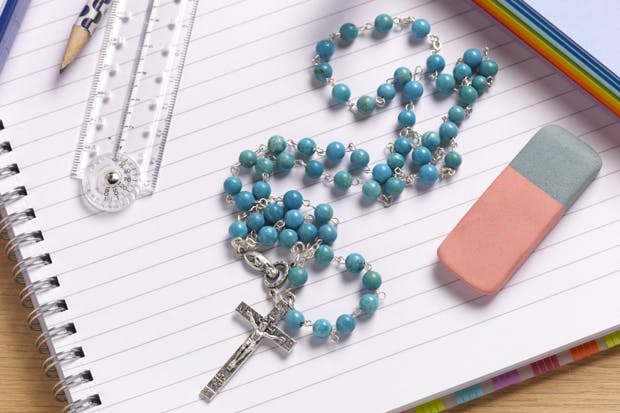Ever willing to exploit my children, I asked them yesterday just how many actual English children there were in their class at school – one’s at primary, the other, secondary. What, English-English, they said reasonably? You mean, both parents, plus born here? Yes, I said, which meant they couldn’t count themselves – they were born in Dublin. They thought about it for a bit. The elder said, counting on his fingers, that five out of 27 were English-English, with another three more half and half. My daughter counted 10 out of 27, if you include pupils from Guernsey and Northern Ireland, which I unwillingly conceded might count as British from some perspectives; a child whose granny is from Sierra Leone counts as English.
The rest were a ragbag. We counted about ten different nationalities, possibly more. My daughter offered: Albanian, Ethiopian, Russian, a little boy who was Greek/Ethiopian, Spanish, Argentine and American. My son’s class has lots of Europeans, boys whose parents are Spanish or Italian or French or Polish but also quite a few from Filipino families plus a couple of Indians.
So far, so good. International Day at my daughter’s school is a bit like Pentecost: an extraordinary mix of nationalities in which Brits, I may say, seem very much to be in a minority and English even more so. It’s all good; the children know each others’ backgrounds but don’t care. They’re all horrified by any manifestation of racism; they’ve been indoctrinated against it – as per usual in London schools.
These are, by most people’s standards, mixed schools; academically both are very good (my son’s school is one of the best in London). And yet, they’re being billed as non-inclusive and discriminatory by parliamentarians committed to maintaining the cap on admissions to faith schools on the basis of religion. They are Catholic schools. Anyone wanting to set up a similar school would have to promise that only half the pupils will be admitted on the basis of religion. So, half the applicants will have to provide evidence of baptism; the other half won’t. Tory backbenchers like Crispin Blunt appear to take issue with the entire existence of schools like this saying:
‘I do not see why the state should be paying for faith-based education. If you want that, then you should have the freedom to pay for it. You cannot expect the rest of us to pay for it.’
Well, here is news to Mr Blunt: people who go to church are taxpayers too. People who identify as Christians pay taxes. And church schools do their bit for the taxpayer by pretty well any criterion: social inclusivity and awareness; and usually, academic standards. They are also overwhelmingly popular with parents: both my children’s schools are ridiculously oversubscribed. Catholic schools are also very mixed and inclusive. So, what’s not to like?
Part of the opposition comes from the description of them as ‘faith’ schools. In fact, they are ‘church’ schools. And when you describe them like that, there’s curiously less opposition. That’s because most of the schools which have real problems to do with integration are Muslim ones, which have fewer middle class parents kicking down the doors. (Though we should always bear in mind that many homegrown Islamists who come to our attention are actually products of state comprehensives, not actual religious establishments.)
There is a simple question to ask when an MP surfaces to take issue with proposed changes to the faith cap: did they, or their children or grandchildren to go a private school of a Christian persuasion? If they did – as in the case of Crispin Blunt, who went to Wellington College – the first master of which later became Archbishop of Canterbury – what business do they have telling other parents that their children must have more diverse, more inclusive schools? Damian Hinds, the new Education Secretary, already looks like a vast improvement on his useless predecessor, Justine Greening, whose sole distinction was that she was a woman, and gay. He’s going to have trouble with his own party in lifting the cap on church schools admissions on the basis of religion. But I hope he sees them off.






Comments